Southern AIDS Coalition (SAC) expresses deep concern regarding the proposed Medicaid cuts recently released by the House Energy and Commerce Committee. This proposal, which utilizes work requirements as the primary vehicle for reducing Medicaid funding, would disproportionately harm Southern states, threatening healthcare access for millions, destabilizing state healthcare systems, undermining community-based organizations (CBOs), and significantly harming state economies. This proposal threatens to unravel years of progress and drag Southern communities backward, further deepening health disparities we’ve struggled to overcome.
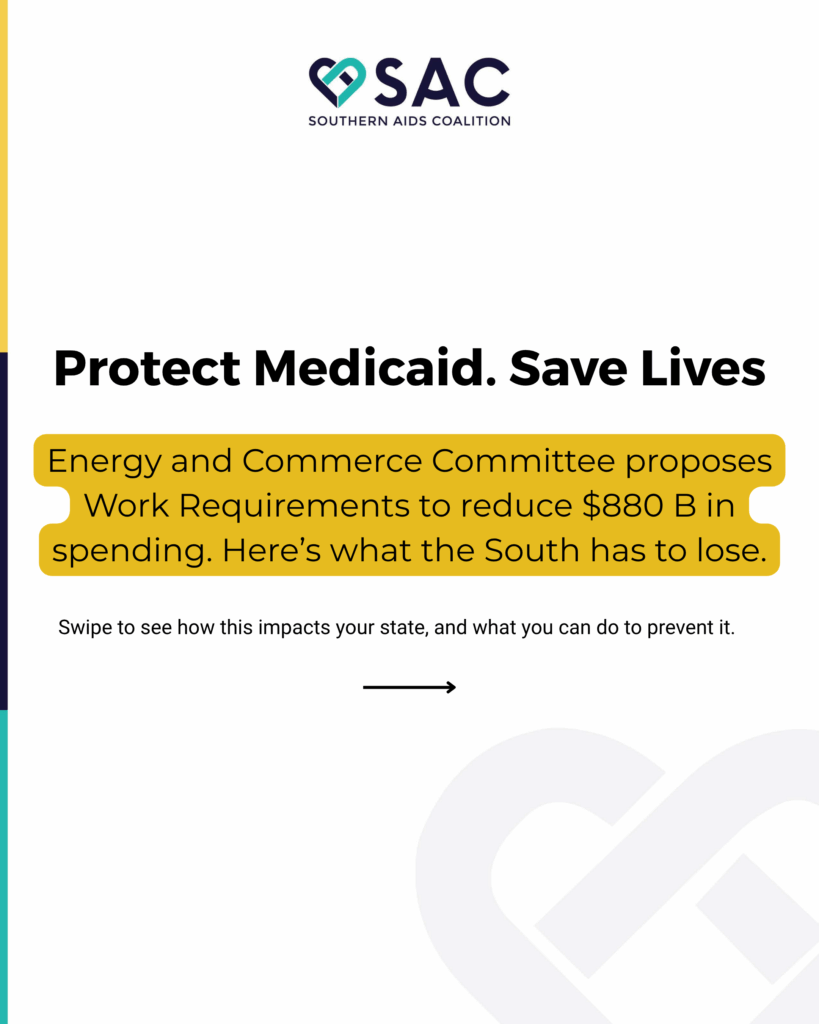
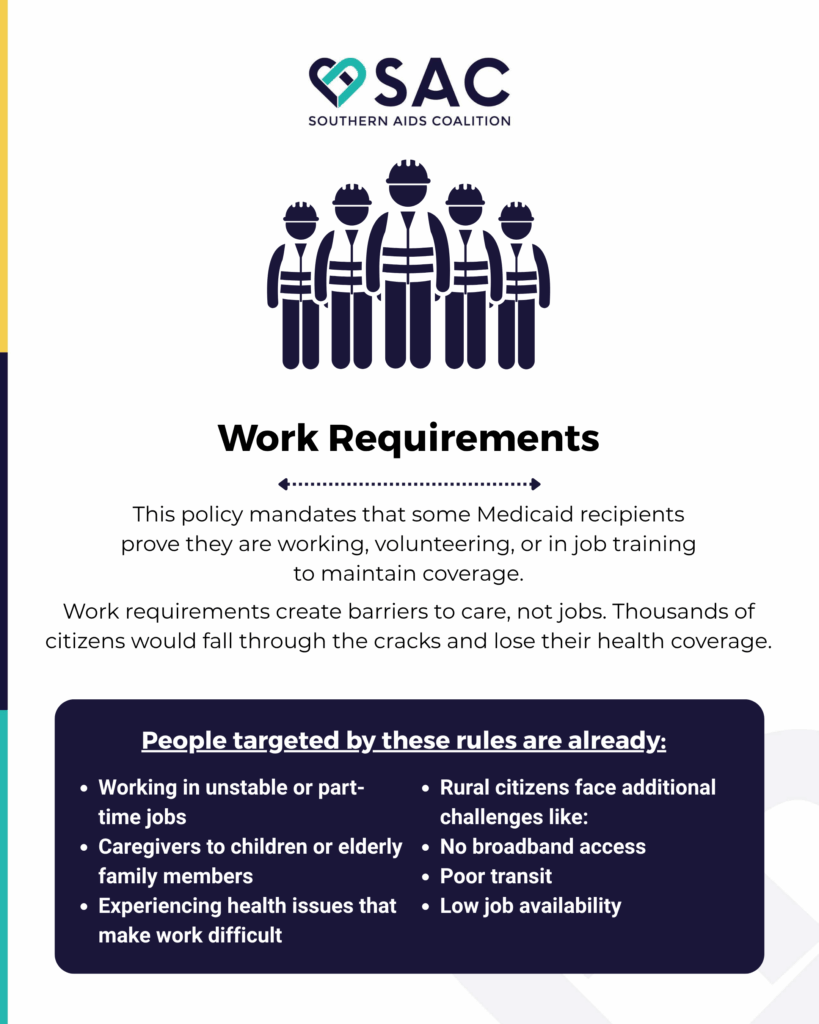
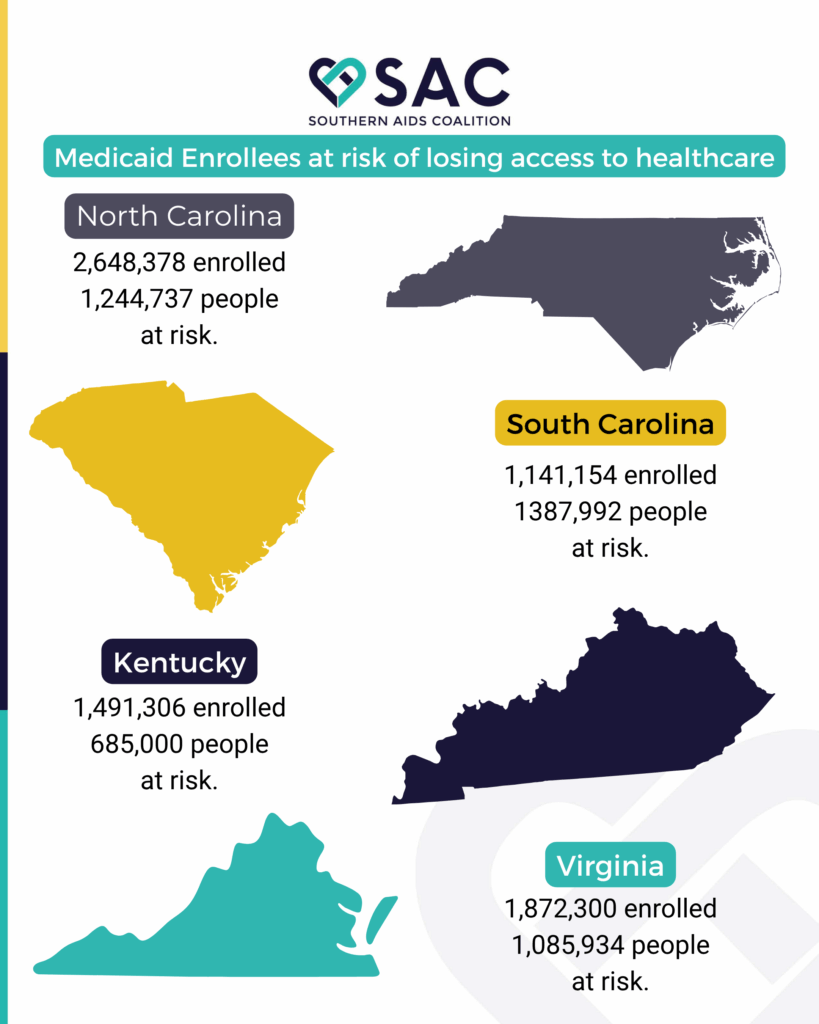

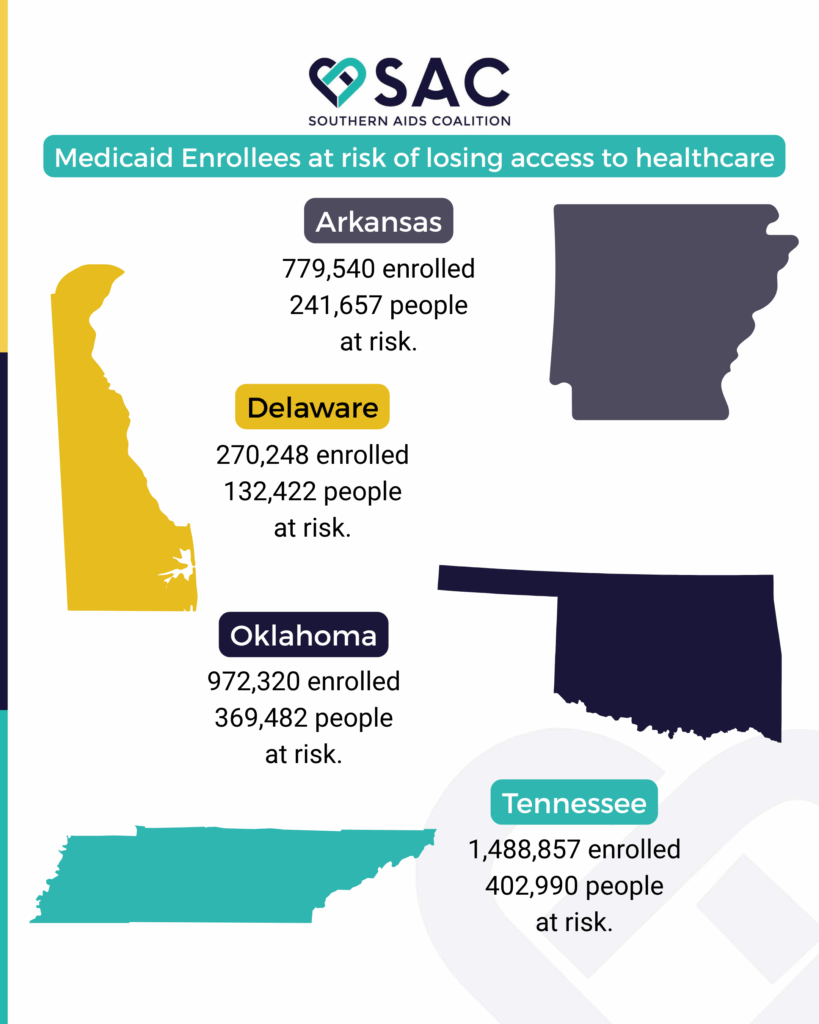
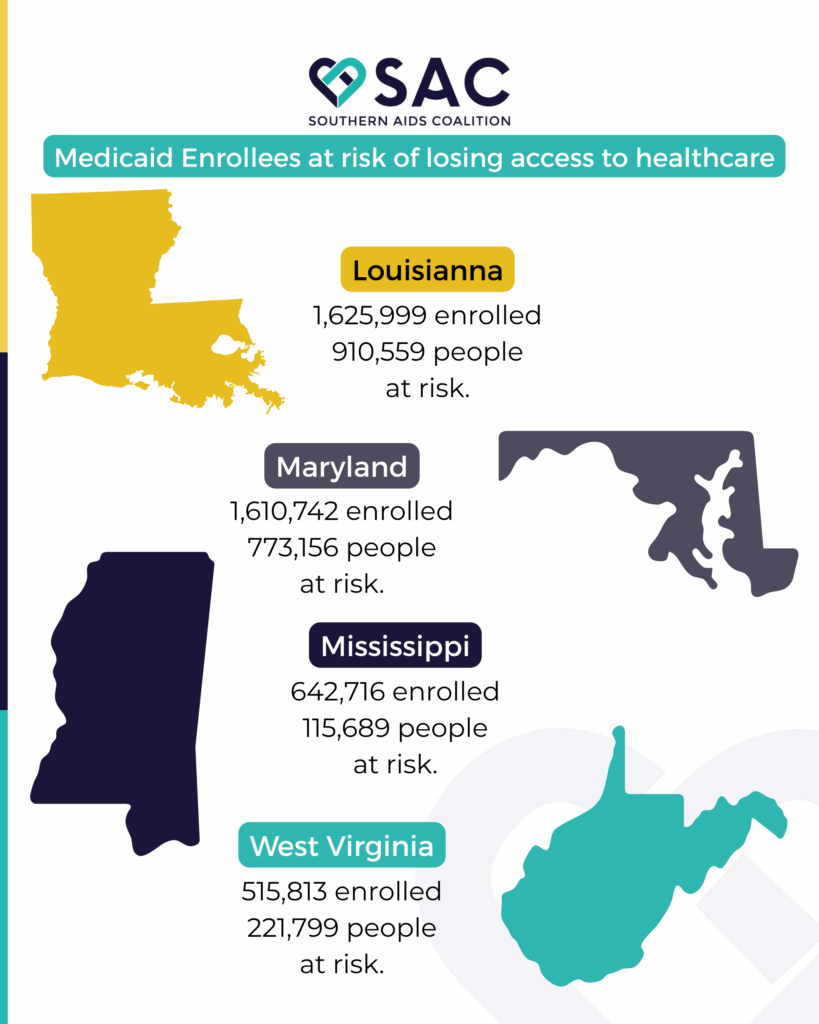
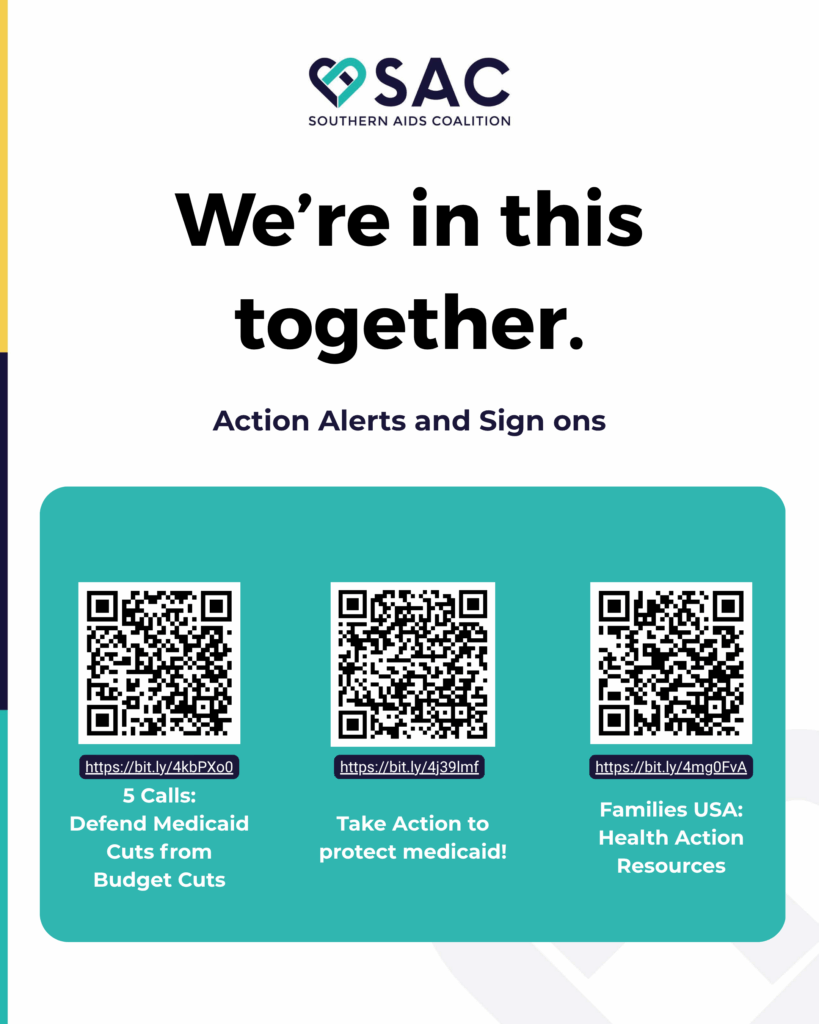
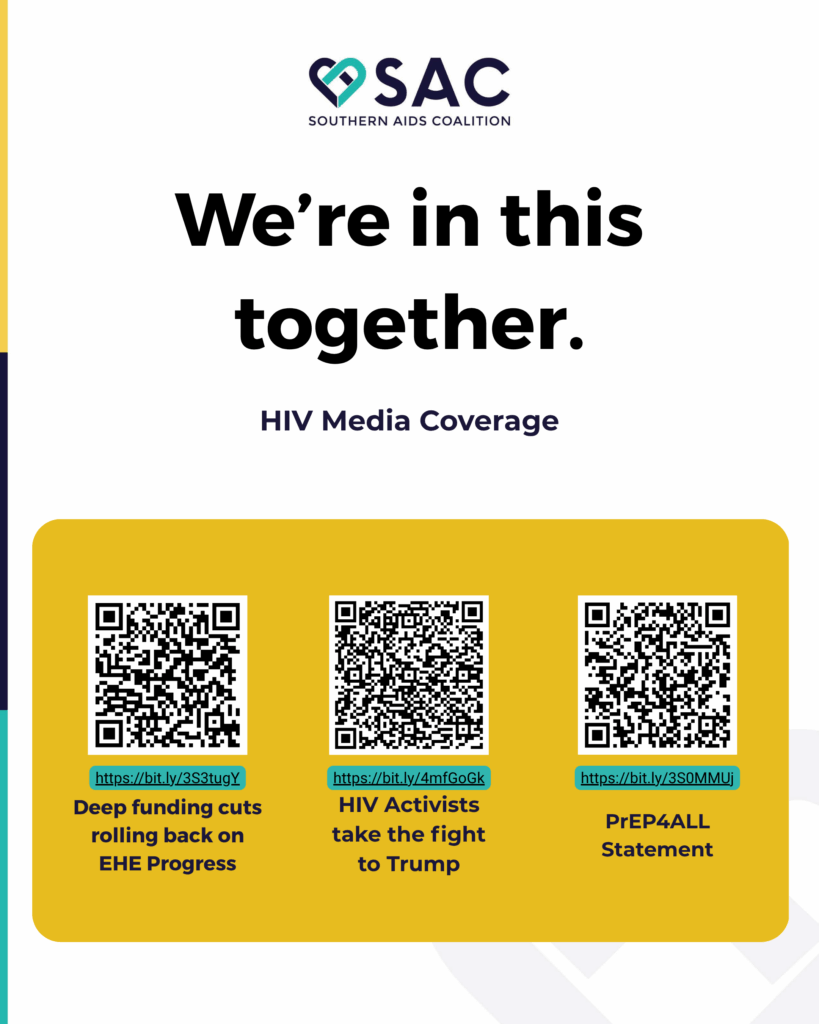

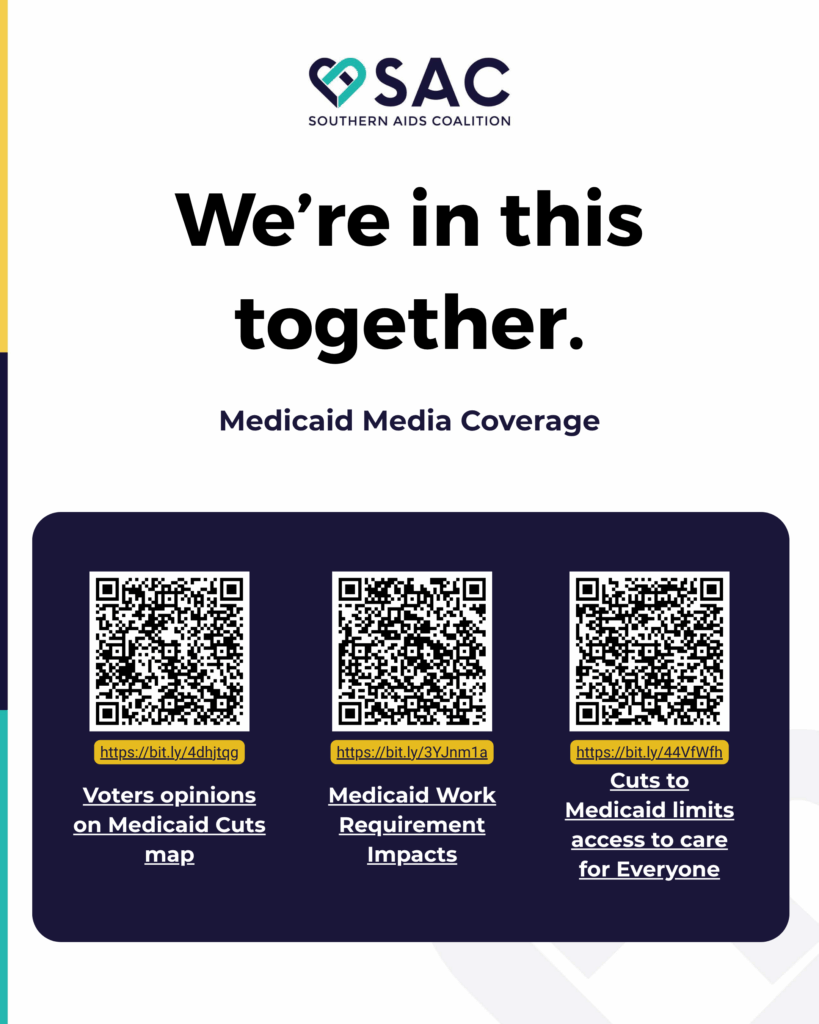
View all graphics here.
Medicaid provides essential health coverage to approximately 72 million Americans, with roughly 30 million residing in the South. That includes states such as Texas, Oklahoma, Kentucky, Maryland and Delaware. Under the proposed cuts, an estimated 8.6 million individuals nationwide are at risk of losing their health coverage; millions of these individuals live in Southern states. The South is already disproportionately impacted by higher rates of poverty, chronic illness, and inadequate healthcare infrastructure. Thus, the proposed cuts would amplify existing disparities and negatively affect vulnerable populations, including people living with HIV.
In the South, Medicaid is a stabilizer for entire communities. Hospitals rely on it to stay open. Community-based organizations (CBOs) use it to serve vulnerable and marginalized populations. Families depend on it to manage chronic illnesses like cancer, diabetes, and HIV. By dismantling this critical infrastructure, the proposal threatens to destabilize the interconnected systems that sustain health access, equity, and resilience in the South. For people living with HIV, the program is essential, nearly 40% of Southerners living with HIV rely on Medicaid for healthcare access. These cuts, particularly through stringent work requirements, would significantly disrupt healthcare services, resulting in increased HIV transmission rates and poorer health outcomes.
The proposed cuts specifically target states that have expanded Medicaid, reducing their Federal Medical Assistance Percentage (FMAP). States like Virginia, North Carolina, Arkansas, Kentucky, and Louisiana, which expanded Medicaid through the Affordable Care Act (ACA), to improve health access and economic stability, would face increased financial pressures. The cuts threaten to reverse the considerable progress these states have made in expanding healthcare coverage, placing additional burdens on hospitals, healthcare providers, and community-based organizations that depend heavily on Medicaid reimbursements to sustain essential services.
The failures of Medicaid work requirements in Arkansas and Georgia serve as stark examples. Arkansas implemented Medicaid work requirements in 2018, resulting in more than 18,000 individuals losing coverage in just a few months without any demonstrable increase in employment. Similarly, Georgia’s Medicaid work requirements have shown minimal enrollment and high administrative costs, undermining the program’s intended goals and exacerbating healthcare gaps rather than closing them.
The economic impact of these Medicaid cuts cannot be overstated. Reduced Medicaid funding will strain state budgets, likely leading to hospital closures, job losses, and economic instability. Rural areas of the South will not only experience loss of services, but also jobs, as hospitals often serve as primary employers and economic hubs.
We urge legislators and policymakers to reject these harmful Medicaid cuts and recognize Medicaid’s essential role in maintaining healthcare access, economic stability, and community health across the South.
Call to Action:
- Contact your elected representatives in the Energy and Commerce Committee to express your opposition to Medicaid cuts. Click here for action!
- Support community-based organizations fighting to protect Medicaid coverage for vulnerable populations.
- Contact Southern members of the House Energy and Commerce Committee and let them know what these cuts mean for their states using this tool.
Together, we can protect Medicaid and ensure a healthier and more equitable future for all Southerners.

